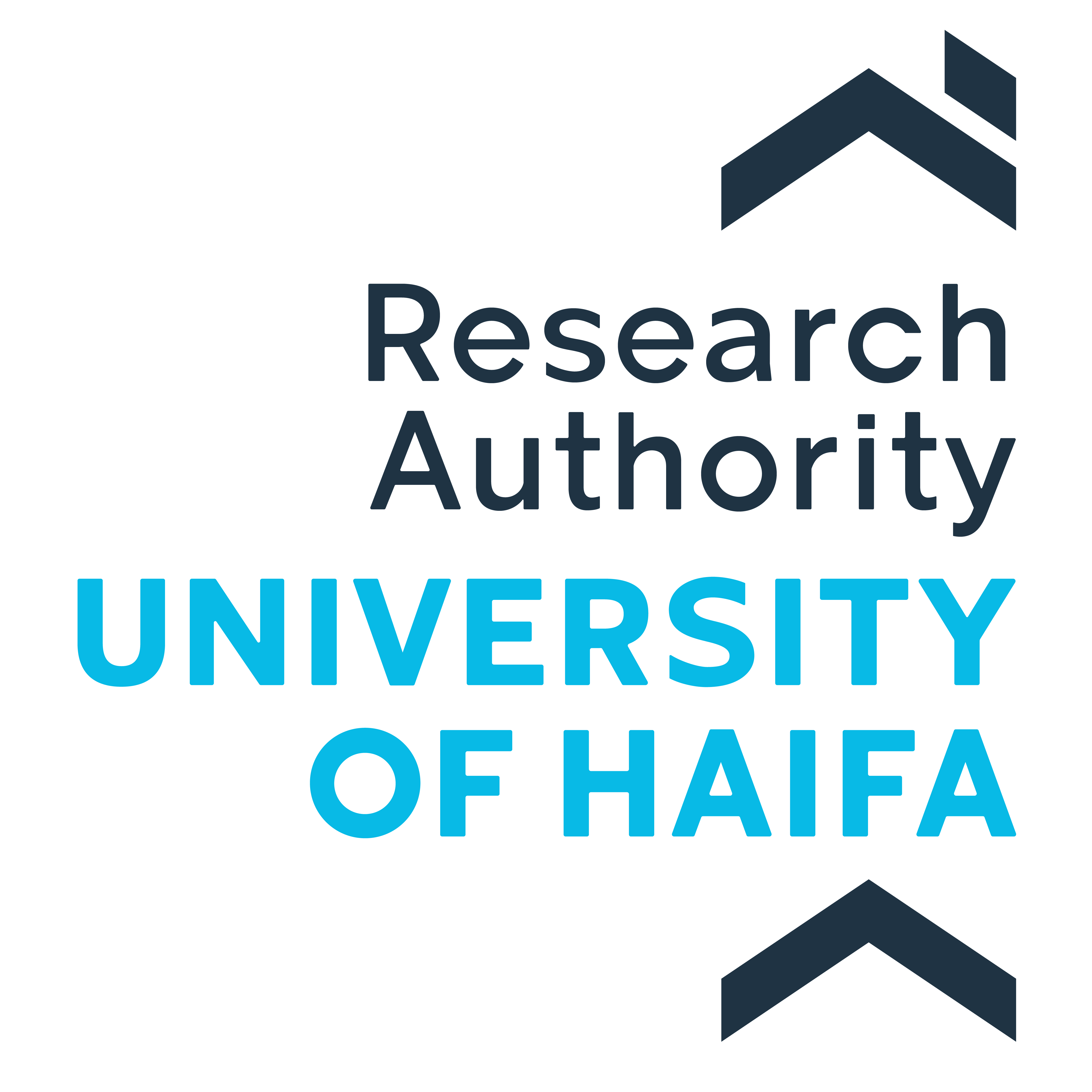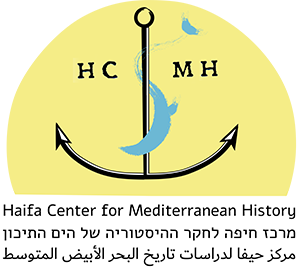The Ancient Mediterranean Sea as a cultural bridge and barrier
HCMH Research Cluster
David Friesem and Gil Gambash
Introduction:
This research focus aims to study the historic role of the sea in the cultural connections and exchange between divergent societies across the Mediterranean basin. As a large body of water, the sea acts as a natural barrier challenging direct and immediate relationships between societies occupying areas distant from one another. However, with the development and advancement of seafaring, the sea offered new paths to cross significant distances, resulting in increased interactions between geographically and culturally distinct societies. Inland connectivity often formed in antiquity a network in which divergent cultures found in great distance can indirectly interact through different mediator cultures found along the way, each well familiar with its neighbours (e.g., the Silk Road). In contrast to terrestrial routes, the connectivity enabled by seafaring was in a metaphorical way like entering a subway running over a long distance without any interactions, until reaching its final destination and emerging in a whole new world with its distinctive geographic and cultural traits. The resulting encounter imposed on each side not only the ultimate ‘other’, but also the renegotiation of their own identity. Until modern times, maritime routes and technology offered the transportation of goods, animals, people, pathogens and knowledge in quantity and speed far greater than terrestrial roads. Thus, the establishment of maritime routes had brought new encounters to the very doorsteps of communities and people, who themselves did not set sail into the sea.
The aim of this research cluster is to identify novel cultural connections enabled by maritime connectivity, and to examine their impact on a multi-scalar level, from the experience of individuals to societal negotiations over identity and cultural definitions. However, the evidence for first and original encounters in pre-Modern societies across the Mediterranean basin is often very elusive, making its identification highly challenging. In order to overcome this challenge, an interdisciplinary approach will be applied through different prisms, from historical accounts to material evidence, in order to identify and qualify the early exchange of items, animals, knowledge, cultural as well as ecological traits and the exchange of pathogens and people themselves. Supported by the Haifa Center for Mediterranean History (HCMH) at the University of Haifa, this endeavour involves doctoral student research, postdoctoral fellows, the organisation of professional meetings, and the dissemination of topical publications. The synthesis produced by this focus considers anthropological and ecological theories, generating a holistic understanding of Mediterranean processes of creolization, cultural innovation and how the cultural unity of the ancient Mediterranean came to be.
Research and activities:
PhD projects:
Ms. Eleonora Bedin
Micro- and Macro-Identities in the Hellenistic Empires: City, Empire, and Sea
The Hellenistic Mediterranean world presents a colorful reality where various actors were playing a role in shaping the identity of its inhabitants. The geography and routine of the Mediterranean region encouraged globalizing dynamics in connecting people, goods, and ideas. The conquests of Alexander the Great and the establishment of Hellenistic kingdoms not only stretched the physical boundaries of Hellenism, but also generated a unifying cultural effect, spreading Hellenocentric ideas of aesthetics, language and religion. Admitting the existence of a globalized Mediterranean, however, does not detract from the individual character and particular self-representation of groups and locales, which would have devised ways to coexist with and adapt to such overarching external influences, and even to oppose to them at times.
This PhD project considers the interconnections between broad perspectives of cultural identity and local particularization thereof, offering a multi-layered picture of the Hellenistic Mediterranean region. By focusing on Mediterranean religion, cross-cultural deities, and adapting strategies, the project outlines a globalized yet diverse Mediterranean world, in which various modes of expression of regional and local identities coexisted.
Collaborations:
Gil Gambash, Massada fellowship at Worcester College, Trinity term 2021
The Rhythm of Cabotage: Innovation and Traditionalism in the Ancient Southern Levant
In its early adoption – even possible invention – of various elements in coastline manipulation, ashlar masonry, hydraulic concrete, and frame-based ship construction, the area of the southern Levant demonstrated time and again, albeit intermittently, its awareness of technological developments, and its ability and willingness to experiment in incorporating new approaches to the maritime sphere. The fact that the examples set by Assyrian Atlit, Hellenistic Akko, and Roman Caesarea were not adopted more frequently and more continuously by such active portals as Dor, Ascalon or Gaza should be discussed as part of the conscious, deliberate choices made by these and other thriving coastal powers, and not as a dictate deriving from lack of knowledge or resources. This collaboration takes place as part of Gil Gambash’s Massada fellowship at Worcester College, hosted by Josephine Quinn during Trinity term 2021. Its plan is to engage in an evaluation of ancient Levantine approaches to the logistics of the maritime sphere, and to incorporate those within the area’s broader scope of Mediterranean connectivity.
Josephine Quinn, Worcester College, and Gil Gambash share research interests in the ancient cultures of the Levant, and particularly in those aspects of local routine that are regularly ascribed to Phoenician initiative, innovation, and exploration. This solid common basis allows for productive dialogue during the fellowship period, and the study of Levantine societies’ approaches to the maritime sphere, which will also benefit from discussions with Nicholas Purcell, Andrew Wilson, Jonathan Prag, and other scholars based in Oxford.
Calls for applications:
Call for Applications – PhD Scholarships Starting October 2021
The Haifa Center for Mediterranean History (HCMH) is offering a three/four-year PhD scholarship on its research cluster – FIRST ENCOUNTERS: The Ancient Mediterranean Sea as a cultural bridge and barrier under the directorship of Dr. David Friesem and Dr. Gil Gambash. The scholarship should begin in October 2021, or as soon thereafter as possible.
The PhD project will be dedicated to the historical role of the sea in facilitating new cultural connections and exchange between unacquainted ancient societies across the Mediterranean basin, and to the ways in which these societies interacted with unfamiliar ideas and came to conceptualize ‘the other’, be it religious, technological, culinary, intellectual, et cetera in nature.
The successful applicant will develop a research plan dedicated to the topic of first encounters over the Mediterranean during antiquity, focusing on a theme, period, and case-studies of her/his choice, and employing methodologies and corpora of sources relevant for the specific research questions produced. Suitable candidates may likely come from an anthropologically-oriented disciplinary spectrum ranging from the historical to the archaeological.
Applicants should supply a personal statement which would include a brief description of the envisioned project, a CV highlighting relevant courses and experience, BA and MA transcripts and diplomas, a writing sample (up to 5,000 words – a chapter from the MA thesis is possible), and a single letter of recommendation.
The PhD program and research will be conducted in English, and will become a part of a wider HCMH focus on first encounters, producing additional relevant academic activities. Successful candidates will be expected to apply for the institutional PhD scholarship. Whether successful in the institutional bid or not, they will be entitled to a stipend of 60,000 NIS per year for three years. A fourth year will be considered if necessary.
Please note that this is a competitive scholarship. The HCMH academic committee will evaluate all applications and inform the candidates of their decision. The awarding of the scholarship is pending on academic and administrative good standing, according to the regulations of the Graduate Studies Authority. Renewal of the scholarship will be reviewed each year according to the student’s report and the supervisors’ evaluation.
Application materials in PDF format should be emailed to Ms. Shiri Barnhart, HCMH administrator, at hcmh@univ.haifa.ac.il. They are best submitted by the end of May 2021, but will continue to be read until the position is filled. Recommenders should mail their letters directly to HCMH.
Dr. David Friesem and Dr. Gil Gambash, HCMH
dfriesem@univ.haifa.ac.il; ggambash@univ.haifa.ac.il

